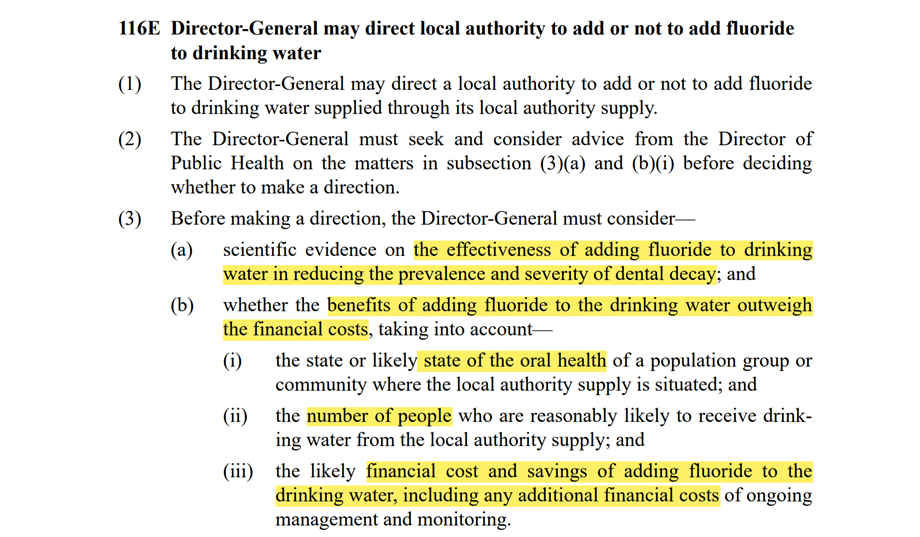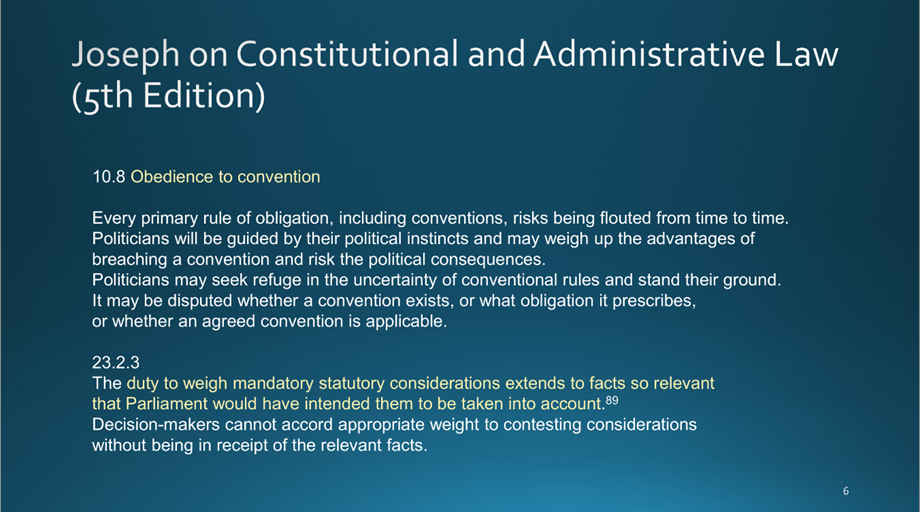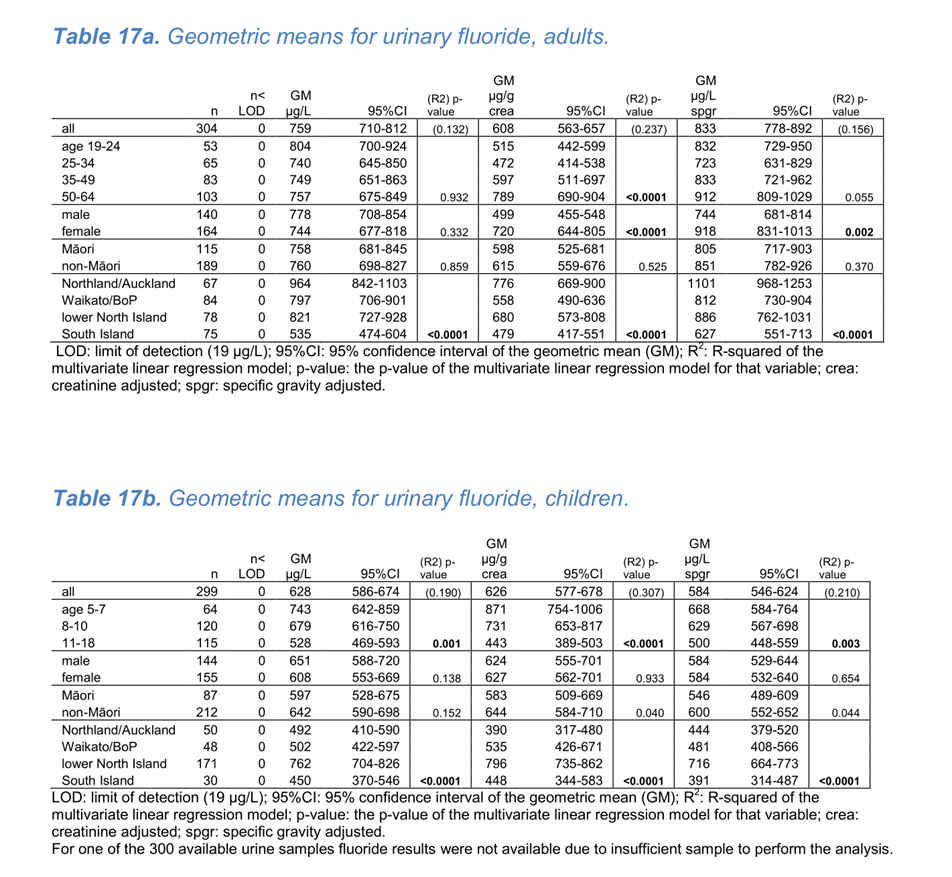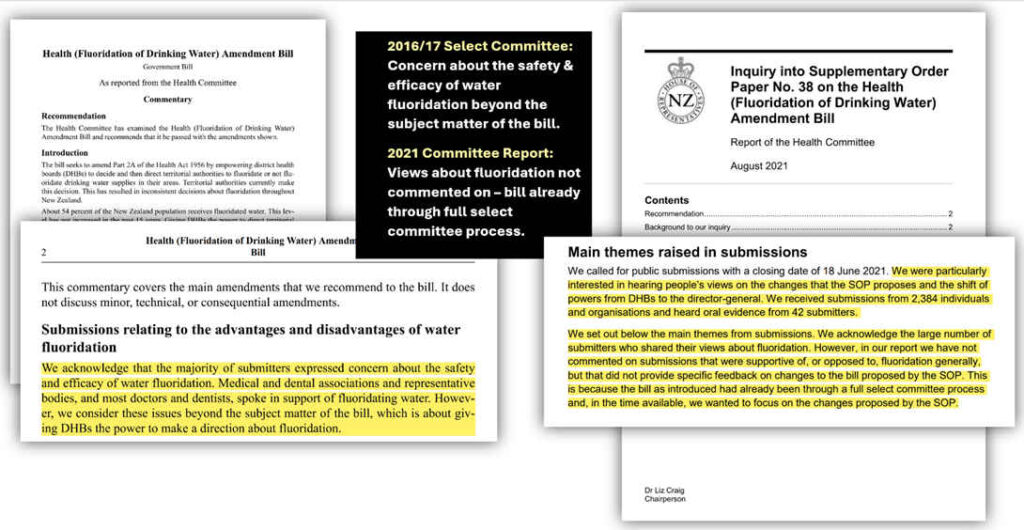Fluoridation of drinking water is mired in controversy, and many people wonder why, as our biggest cities, Wellington and Auckland, have been fluoridated since the 1960’s.
Like any controversy, the issues can be difficult to pick apart, so the perspective here reflects one position.
Last Monday August, 26, Tauranga City Council (TCC) voted to seek an extension to defer the fluoridation of Tauranga’s water supply after council staff prepared a report.
Along with Dr Alanna Ratna and Robert Coe, I presented on behalf of the Physicians and Scientists for Global Responsibility New Zealand (PSGRNZ). I emphasised the absence of formal risk assessment, and that a review where the methods of analysing and assimilating information had not been disclosed – created an evidence base that was not fit for purpose. Policy-relevant science requires good process, so that it is trustworthy. This is to eliminate as much as possible, risk of predetermination or bias.
I stated that ‘risk assessment is not a departure from the science, but being true to science.’
This information did not make it into the Bay of Plenty Times news release.
Judges are rather tired of court cases brought by groups attempting to prevent fluoridation (here and here and here). Most recently, although the Director-General (D-G) was found to have failed to consider the Bill of Rights Act, the judge decided that there was no need to halt fluoridation of drinking water while the D-G reconsidered. A different and following court case, taken because the D-G had not reconsidered, ended with the applicants having to pay $40,000 in court costs. Costs serve as a chilling effect to reduce the prospect of future court action.
We might ask whether Section 116E in the Health Act 1956 deserves some serious scrutiny. In our presentation to TCC, PSGRNZ wondered whether s116E was ‘terribly drafted’. S116E, which gives the D-G her powers, has a low evidence bar. The D-G ‘only’ has to believe that fluoridation might lower the prevalence and severity of dental caries. No requirement to balance benefit of perhaps a claimed reduction of a few caries – with cognitive neurodevelopmental risk (IQ) loss or other risks, such as too much fluoride in children’s bones. There is no requirement for the D-G to consider the safety of fluoride.

When the D-G considers whether fluoridation is a reasonable limit on the right to refuse medical treatment, does the D-G have any guidance or support to judge uncertain risks to children, and the need to take into account precaution if it’s written out of this legislation?
The entire function of the Ministry of Health demands that officials protect health. Public health is ‘the art and science of preventing disease, prolonging life and promoting health through the organized efforts of society’. The presence (or not) of expert communities shape how uncertainty is approached.
Without having to assess safety using transparent methodological processes, to ensure trust in ‘science’, without having to balance a claimed health benefits with health risks ( in the legislation, the [iii] financial costs and savings consideration doesn’t encompass broader health-based trade-offs), this new legislation, with its big fines, could undermine the obligation of both the Ministry of Health and territorial authorities to protect health by writing out uncertainty and risk.
Then there are the long haulers, towns whose municipal water has been fluoridated for decades. I’ve just asked Auckland Council whether they’ve received legal advice to understand whether s116E risks undermining or contradicting other relevant legislation.
The fines might have a perverse chilling effect where officials fail to consider other equally important legislation. These other laws form a kind of safety net, supporting officials to take safety seriously, so as to protect health (remember, safety is not in s116E) no matter the narrow interest or focus of one group.
Protecting health involves assessing competing hazards
Protecting public health includes making policy to prevent harms, and paying particular attention to the developmental origins of health and disease.
The controversy surrounding fluoride concerns fluorides’ recognised toxicity and when harm might start to happen to developing brains. Fluoride is not a nutrient. Healthy teeth depend on a wide range of minerals and trace elements, and limited access to sugar sweetened beverages and ultraprocessed foods.
Does fluoride present an unreasonable risk to developing brains? This month the most thorough study ever undertaken on fluoride and IQ risk to developing brains was released by the National Toxicology Program (NTP) in the United States. All processes – as methodology – were transparent and trustworthy.
The scientists stated that they had moderate confidence that fluoride was a developmental neurotoxin above levels dosed into drinking water (above 1.5 mg/L of fluoride), but that ‘uncertainty remains in findings at the lower fluoride exposure range’.

The study and peer review took years. When the NTP scientists conducted an updated literature search, they found that newer research with similar study designs has ‘similar patterns of findings’. What does this mean? The information on risk to kids’ IQ is unlikely to be contradicted – it is more likely to grow.
The NTP scientists expressed concern that other exposures, such as toothpaste, might cumulatively increase IQ risk. This is the problem – we cannot know when harm starts, we are all different.
The greatest intake of fluoride by bodyweight is for babies and children. In utero and 8-year-olds will have the greatest exposure, and they are the exact group for which an excess of fluoride presents the greatest cognitive neurodevelopmental risk – risk to IQ.
This is why globally, topical treatments are preferred, ‘given the optimal risk-benefit ratio’.
How does New Zealand regulate fluoride, and how do authorities assess risk from fluoride exposure?
The role of the NZ EPA, RMA & Local Government Act
Risk assessment by the New Zealand Environmental Protection Authority (NZEPA) under the Hazardous Substances and New Organisms (HSNO) Act 1996 is in place to protect the public and to the environment from harmful toxic chemicals. The NZEPA have a responsibility to protect the environment, and the health and safety of people and communities, and must take precaution into account when making decisions.
The NZEPA have never undertaken a formal risk assessment of fluoride or the fluoride compound added to drinking water. Fluoride isn’t simply added as a clean medical-grade chemical element, the liquid that is added is hydrofluorosilicic acid (HFA).
Risk assessment undertaken by independent experts in toxicology and endocrinology looks at many factors, including reproductive and developmental risk and requires officials to follow rigorous and transparent processes when selecting data. The U.S. fluoride and IQ study followed a rigorous protocol and transparently declared the way they evaluated scientific studies for quality.
When we are dealing with risk to IQ, it’s critical that authorities don’t carve out scientific information, if it contradicts their existing beliefs. Officials should not take a predetermined approach to policy-making, this is a principle of public law.
Local Communities
Local communities have historically had the power to decide whether drinking water was fluoridated in their town. Towns that are fluoridated have all municipal water dosed with fluoride. Municipal water is emitted into the environment. Authorities are required to safeguard the life-supporting capacity of water. However, in the decades that fluoride has been dosed into water, there has never been monitoring nor surveillance undertaken to identify the risk to both invertebrates and vertebrates over time.
Wastewater treatment plants don’t appear to require a resource consent to emit fluoride or HFA into rivers or the ocean.
Local authorities are stuck between a rock and a hard place. They have responsibility for the safety of drinking water and waste treatment services. Central government has had a policy of increasing immigration and tourism but have failed to commensurately support improvements in this area. The Local Government Act (LGA) 2002 promotes the accountability of local authorities to their community. When local authorities are assessing drinking water services they must ‘identify and assess any other public health risks relating to the drinking water services supplied to the community’ s125(f).
The LGA states that a bylaw may be made for the purpose of ‘protecting, promoting, and maintaining public health and safety’ (s245(a)) and that ‘the Crown is bound by any bylaw if non-compliance with that bylaw by the Crown would be likely to have an adverse effect on public health or safety’ (s153(3)).
Local communities have been able to demonstrate that the science on the fluoridation of drinking water is not settled, and that there is much uncertainty about the safety of fluoride. Being able to converse and discuss the uncertainty about fluoride’s toxicity and the need for precaution has been an important element of community participation and trust in decision-making.
New Zealand – Our evidence base
In 2014 Professor Paul Connett travelled New Zealand, presenting to local councils and to some members of Parliament. Auckland councillors consequently made a request to review the scientific evidence on the efficacy and safety of water supplies.
During this time the question of fluoride as a medicine with a therapeutic purpose was raised in a court case. The judge equated fluoride (a non-nutrient) with an essential nutrient, iodine.
In 2014 Peter Gluckman and David Skegg authored the report Health effects of water fluoridation: A review of the scientific evidence. This review cannot be considered a risk assessment. It was not undertaken by independent toxicologists, the methodology was not declared, and there was no explanation why certain studies were excluded. Later that year, an amendment to the Medicines Regulations 1984 were proposed.
But it is apparent that the courts have not twigged that the role of risk assessment is an important administrative law convention. These reviews, to all appearances, held up as authoritative by the courts, and by the Ministry of Health as gold standard, are instead more akin to fool’s gold. Both reviews lacked a transparent, methodological process for selecting which science would be deemed authoritative.

The D-G cites a 2015 Cochrane Review as more evidence. This review did not consider cognitive neurodevelopmental risk and neurotoxicity. Later that year Sapere Research Group were contracted to considered the benefits and costs of water fluoridation. This group did not review the toxicity and neurodevelopmental risk in this document nor in a later 2016 paper.
In 2021 the Office of the Prime Ministers Chief Science Adviser (OPMCSA) released a paper, which was later updated. As with the 2014 paper, there was no methodology released to demonstrate that an independent review of the scientific literature was undertaken. The peer reviewers were overwhelmingly experts in oral and dental health with a long history of favouring fluoridation.
Over this period the United States National Toxicology Program (NTP) was reviewing a broad range of studies to evaluate fluorides impact on learning and memory, and by 2020 a draft monograph had been published. Many of these were out of scope in a similar Australian review. The Australian review considered fluorosis the greatest risk and did not consider intelligence suitable as a biomarker.
Cumulative exposures should be taken into account when dosing with any medical compound.
In 2018 a New Zealand report showed that young children had higher urinary levels than adults. The main controversy revolving around the NTP draft monograph concerns the refusal of scientists involved to confirm that levels in drinking water, i.e. below 1.5 mg/l were not a cognitive neurodevelopmental hazard, in part because of other exposures, including via toothpaste.

In 2017 a case commenced in the United States under the Toxic Substances Control Act 1976, while in New Zealand oral health scientists released the paper The costs and benefits of water fluoridation in New Zealand. The latter paper stated that concerns relating to cognitive risks are neither ‘realistic nor significant’.
The OPMCSA 2021 paper did not comment about children having higher urinary levels of fluoride than adults. The NTP information was broadly dismissed as not suitable for policy development, and recent comments in a U.S. court case by an Environmental Protection Agency fluoride expert were ignored.
New Zealand – Changing our laws to require community fluoridation
In March 2016 a regulatory impact statement (RIS) was published, transferring decision-making to district health boards. The RIS did not discuss the potential for cognitive neurodevelopmental risk.
The 2016-2017 Health (Fluoridation of Drinking Water) Amendment Bill 208-2 stalled in select committee. The Select Committee dismissed submitters concerns about the safety of fluoride as ‘these issues are beyond the subject matter of the bill, which is about giving DHBs the power to make a direction about fluoridation’.
Our water services regulator is required to ‘protect and promote drinking water safety and related public health outcomes’, while the Water Services Act 2021 requires that safe drinking water is supplied to communities, and that our regulatory framework is consistent with global best practice. The Act requires that officials consider ‘other causes together with the consumption or use of drinking water’.
The Health (Fluoridation of Drinking Water) Amendment Bill was reopened and preceded by a June 1 2021 Supplementary Order paper, shifting power to the Director-General of Health to direct a local authority to add fluoride to water supplies.
One day later the OPMCSA released the 2021 paper. The timing evidentially political, as this document supported the pre-existing view of fluorides’ safety. The experts were exclusively oral and dental health experts.
An Inquiry into the Supplementary Order Paper commenced, and the August 2021 Report of the Health Committee replicated the precedent set by the 2016-2017 select committee process by refusing to comment on public concerns regarding the scientific uncertainty over the cognitive neurodevelopmental toxicity of fluoride. The Bills Digest, a repository for information relating to a new parliamentary Bill did not contain information demonstrating the government had considered the cognitive neurodevelopmental risk, with the only side effect considered being fluorosis. The RIS was not updated, with officials relying on the 2016 version to justify fluoridation of water.

The Health (Fluoridation of Drinking Water) Amendment Act 2021 then came into force. It did not mention that the full compound would be added to municipal water, simply that ‘fluoride’ would be added, which is surprising for legislation that depends on fine details. The Act does not require independent toxicological assessment of the safety of fluoride by age and developmental status.
The Act states under section s116G that officials are ‘not required to consult on any matter related to the direction or invitation.’ This contradicts the Local Government Act 2002, where officials are required to consult. We might ask if the LGA which specifically states that the Crown cannot over-ride local by-laws that concern public health, might be relevant here.
We are left with multiple absurdities
The Crown won’t do a risk assessment, and has insisted on deferring to scientifically dubious reviews to claim the science is settled. We have watched two lots of select committees swiftly dismiss public concerns about the safety of fluoride as being out of scope because the legislation is not concerned with the scientific safety. We’ve seen judges depend on official assurances but from all appearances, fail to appreciate the importance of rigorous science and transparent methodologies to impartially establish risk from toxic chemicals and medical treatments, to consider risk pathways, by age and developmental stage.
We’ve observed the Crown overlook cumulative exposures and the fact that kids have higher levels of urinary fluoride than adults, even though drinking water suppliers must legally consider cumulative exposures. We’ve seen an outdated regulatory impact statement lock in place.
Policies demonstrating topical fluoride might be safer and more effective have not been reviewed alongside policies advocating for ingestion. The Crown has then produced legislation that only requires that cavities must be reduced rather than prevented. If a marginal reduction in cavities occurs – the same inflammation, the same health problems will arise with poor oral health, but this is ignored.
The legislation states that local councillors must do what they are told and cannot consult, even though older legislation states that they must, particularly when it comes to public health. If councils have accepted money from the Crown and started the process but then do a backflip, they have to repay the lost money.
Then we’ve seen much of the fear from elected councillors revolving around the fine if they don’t fluoridate municipal water, but then perhaps the D-G never intended to enforce the fines if councils didn’t fluoridate?
A marginal reduction in cavities is the aim – but we cannot possibly evaluate the broader risks that are over-ridden by a marginal reduction in cavities. Because two reviews by scientists seconded to the Prime Minister’s department is our ‘gold’ standard.
Image credit: LuAnn Hunt
CDC Agrees with NRC Finding That Fluoride Can Potentially Cause Alzheimer’s and Dementia. Deposition testimony taken in the Fluoride Lawsuit reveals that the CDC is aware of and agrees with the U.S. National Research Council’s (NRC) finding that fluoride can cause permanent damage to the brain, including Alzheimer’s and dementia. https://gab.com/AustraliaOneParty/posts/112639951400469244?fbclid=IwZXh0bgNhZW0CMTAAAR3Yn45HfodP0g-pMoPrFQckm_2ak3XLrc-HXOcx2ikTEul-PqM7xh5PTjo_aem_F-d-XE7G-97-9zAP5LzuHg
Lots of information in the comments. https://gab.com/GetTheFacts/posts/112696278968107806
The corporate state just loves us to death, but then again, we the people don’t stand in our “jurisdiction” and refuse to contract with them.
No corporate jurisdiction over the Natural Man was a US Supreme Court Ruling in the Penhallow v Doane’s Administrators in 1795.
The Supreme Court Ruling reads – “Inasmuch as every government is an artificial person, an abstraction, and a creature of the mind only, a government can interface only with other artificial persons. The imaginary, having neither actuality nor substance, is foreclosed from creating and attaining parity with the tangible. The legal manifestation of this is that no government, as well as any law, agency, aspect, court, etc. can concern itself with anything other than corporate, artificial persons and the contracts between them”.
Natural law or common law trumps corporate law or public law. We have to know the difference and learn how not to get “tricked” into their jurisdiction.
You touch on one of the most important but generally unknown subjects:
Common Law is the old english law, but developed so much Case Law that it had become convoluted and the king in some cases stepped in to make fair decisions, and ruled, which became Equity Law, which cannot exist without Common Law, but equity added ‘fairness’.
What is prevalent now is corporate law (i.e public law, i.e. admiralty law/maritime law) which functions on contract law. All agreements are contracts.
All corporations operate under Commerce and Contract Law. Every public entity is a corporation:
Your council
the government
Police
courts
Ministry of Health
Ministry of Education,…
Contract law (all corporations) needs to create joinder/contract/agreements. Without it, they have no jurisdiction over you. “Privity of contract” forbids inclusion of others who are not mentioned. Where people give their power away unknowingly is by joinder or entering contracts by silent acquiescense.
For example, by handing over your driver license as ID to a cop or anyone else, you agree to joinder with the birth certificate entity the system created and owns (hence they can tell YOU, the person, the ALL CAPITAL NAME what you can and cannot do). If you identify with their creation, you are owned.
You also enter a contract by silent acquiescens for example when mail arrives with your name in ALL CAPS letters and you belive it is addressed to you, the man or woman.
The corporate system owns us and treats us as chattel when we believe in all the titles they give us. Mr/ Mrs, doctor, farmer, resident, driver, employer/employee, landlord/tenant, person, voter, ….
Read legislation and it NEVER talks about men and women. And it only rarely talks about people. And one of these legislations is mighty important to remember:
Criminal Procedure Act sec 381 Payment of fees, fines, etc
(2) Section 364 and this section override every enactment …..having the effect of granting people of any description, …. protection or immunity from criminal or civil liability (or both).
So as long as we are identifying as man or woman, as one of the people, we are free. Make no mistake, the cops and councils and politicians have learnt to coerce you with threats and fear. Learning to be out of fear is vital.
How insiduous the governments of the world are, get the book “Who is the Government” https://www.whoisthegovernment.com/product-page/who-is-the-government
It is a book written by the NZ farmer Ewan Campbell. What the system did to him you can witness on “60 Minutes”: https://www.youtube.com/watch?v=3GDm3Y9wAuA
Yes, and they certainly don’t want us finding out that we are a beneficiary of the bonded and exchange traded original birth certificate full caps name known as the Cestui Que Vie Trust. They want to keep us “lost at sea” and in their Admiralty/Maritime jurisdiction, while they trade us like the “stock” that we are to them.
I ordered the book and watched the vid. Thanks for that info.
Sir Peter Gluckman and Sir David Skeggs commissioned the report titled: Health effects of water fluoridation: A review of the scientific evidence. A report on behalf of the Royal Society of New Zealand and the Office of the Prime Minister’s Chief Science Advisor August 2014
The following statement is contained in the report’s conclusions:
“This analysis concludes that from a medical and public health perspective, water fluoridation at the levels used in New Zealand poses no significant health risks and is effective at reducing the prevalence and severity of tooth decay in communities where it is used”.
Clarification was sought, from Sir Peter and Sir David as to the reason why the word “significant” was placed between the words “no” and “health” in that statement.
This clarification was sought because of the liability responsibilities that could be carried by all participants in water fluoridation if the authors of the report confirmed that the conclusion was worded as published because fluoridation of water at the levels used in New Zealand created health risks but it was the report authors opinion that the risks were not significant.
Sir Peter responded: Regarding your query of the use of the word ‘significant’, in the context of the sentence that you quote, it means ‘meaningful’ or ‘of consequence’. The statement does not imply that fluoridation damages human health – in fact quite the opposite. Given the caveat that science can never be absolute, the panel is unanimous in its conclusion that there are no adverse effects of fluoride of any significance arising from fluoridation at the levels used in New Zealand.
In summary Sir Peter tacitly agreed that it was his and Sir Davids conclusion that “water fluoridation at the levels used in New Zealand poses health risks but they determined< in the absence of any description of methodology that these health risks were "insignificant"".
Fish survive in well water, they die in city water. 🤔
I believe the evidence is very clear and right in front of our faces.
A known neurotoxin in the water equates to a retarded passive population.
No such effort was ever made to dissuade the drinking of psyop pop drinks.
These are directly linked to a multitude of health issues, social decay and environmental pollution.
No such concern has ever been paid to this fact.
This is snakeholder crapitalist management and we are stakes. Chattel. Units.
I did never nor will ever accept this corporate infestation posing as nzgovtcorp and their agents.
The citizens of this country are presently inmates ruled by fraud and force.
A Human farm. For the snakeholder crapitalists.
“our” police and justice work to control us and protect the fraud.
The whole system is loaded against us to keep us penned up like cows.
Dumb and under the thumb.
I believe we should give them what they demand.
All those who have been driving this fraud can have their very own 15 minute city.
Maybe an island?
Solar and wind power only.
24/7 total surveillance with brain chips and cameras up the wazoo.
No real meat. Bugs and fake chemical meat only.
Limited funds. Limited travel.. Cant leave.
Keep changing the rules, “oooh you’re getting out…. Aaaaw you’re being executed… Aaaw maybe not… But maybe…. For your own good”
Plenty of vaccines and pharma meds.
Sprayed with barium, strontium, alluminium etc.
Forced sterilisation.
Fluoride water.
Roundup everywhere.
I’d subscribe to that.
Their dream fulfilled.
We could all watch them for entertainment… 24/7.
There’s only 20k of them.
We get to keep the funds 👍
And WE get OUR planet back.
Fluoride is a neurotoxin.
Unfortunately our ‘public health’ bureaucrats are retarded indoctrinated groupthink morons.
This will never change sadly.
The solution is to buy a water filter.
To get the Fluoride out of tap water you need more than just a ‘water filter’ You need a very expensive ‘reverse osmosis system with ongoing maintenance. Much cheaper and better long term is to fight to get the Fluoride out of the water for all, especially for our childrens sake.
Behind the beehive: Fluoride in the water? Here’s the evil backstory…
https://www.bitchute.com/video/Epm87YxVFOSJ
They push the Floride in the big cities most so the population turns over more. In other word they want every body between 65 and 70 to pass on so they dont have to pay the pensions. They want a younger population regenerating all the time,